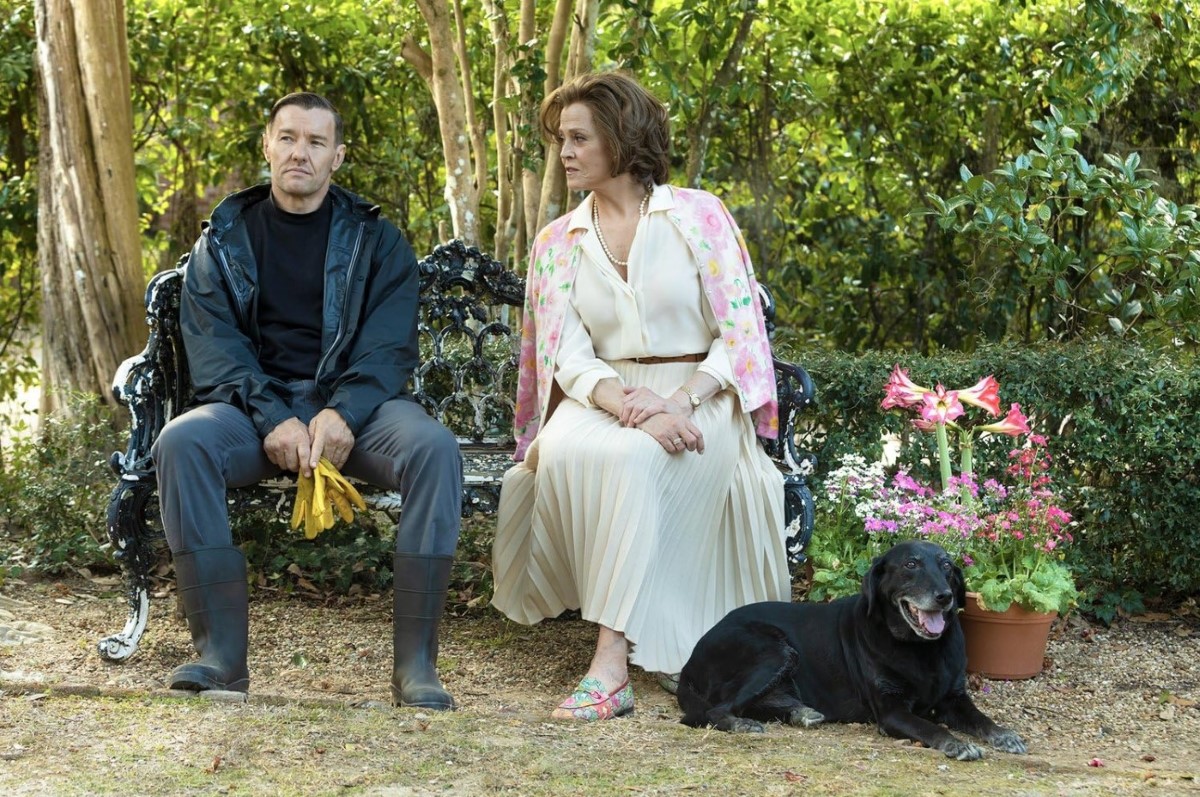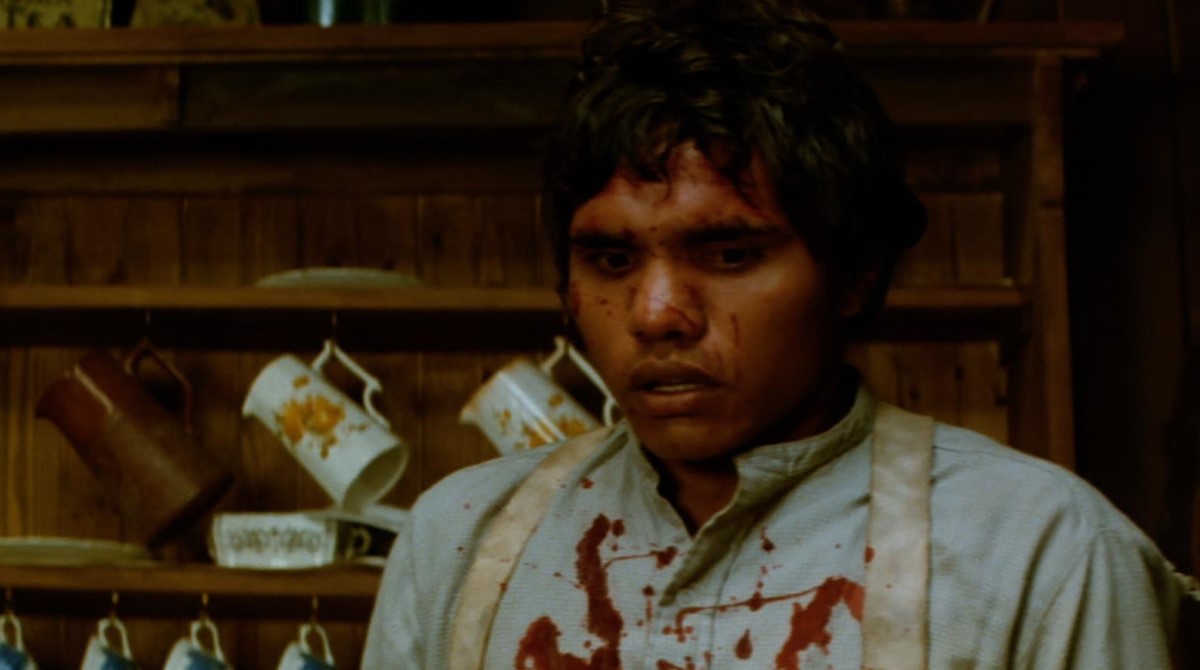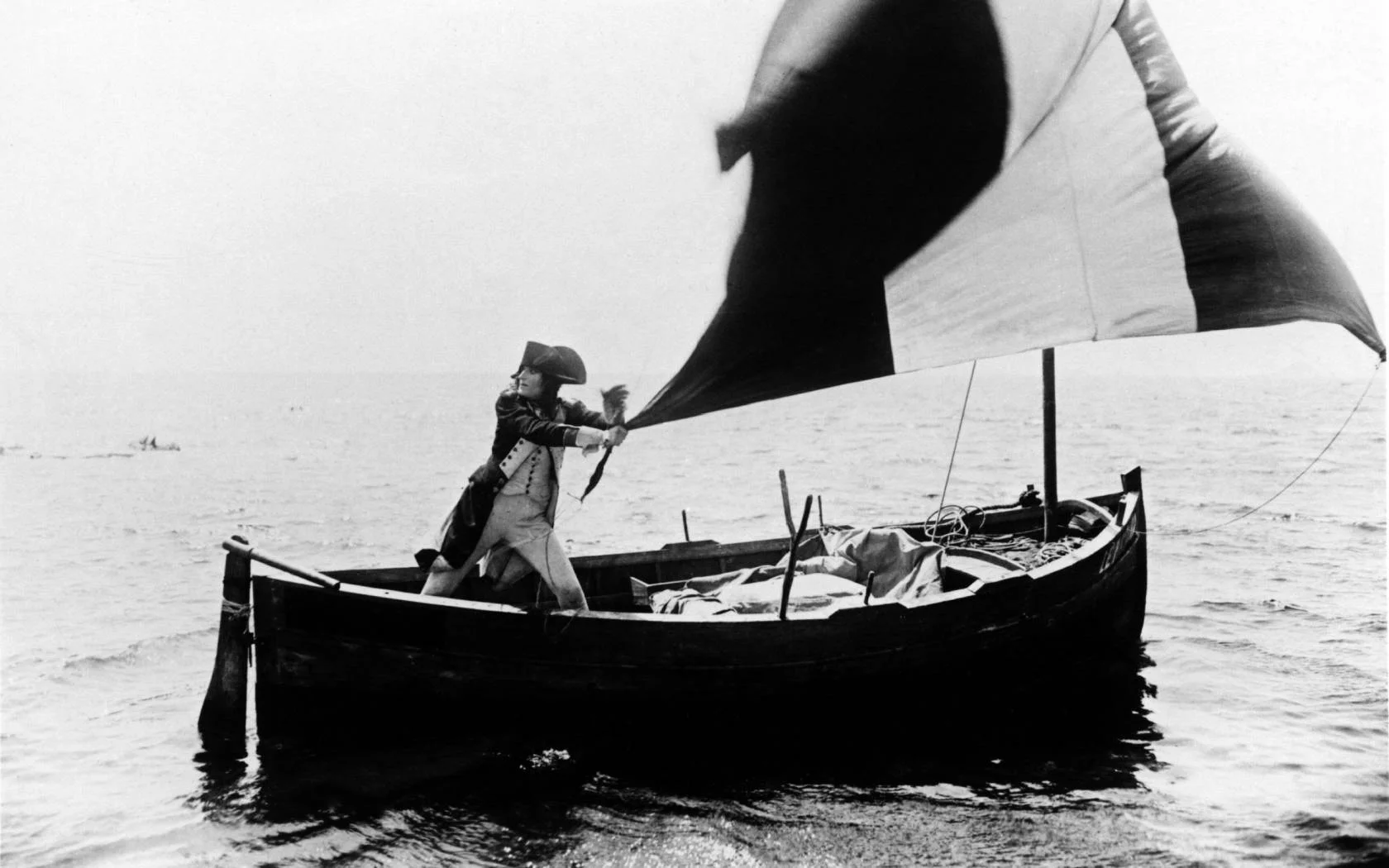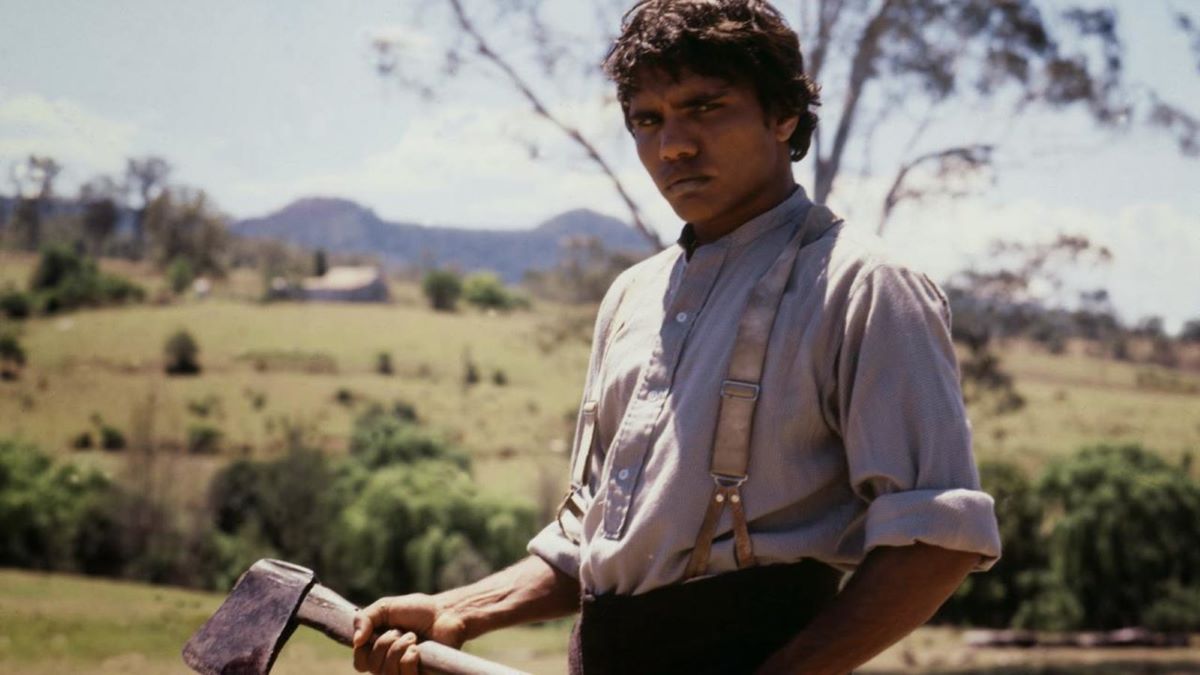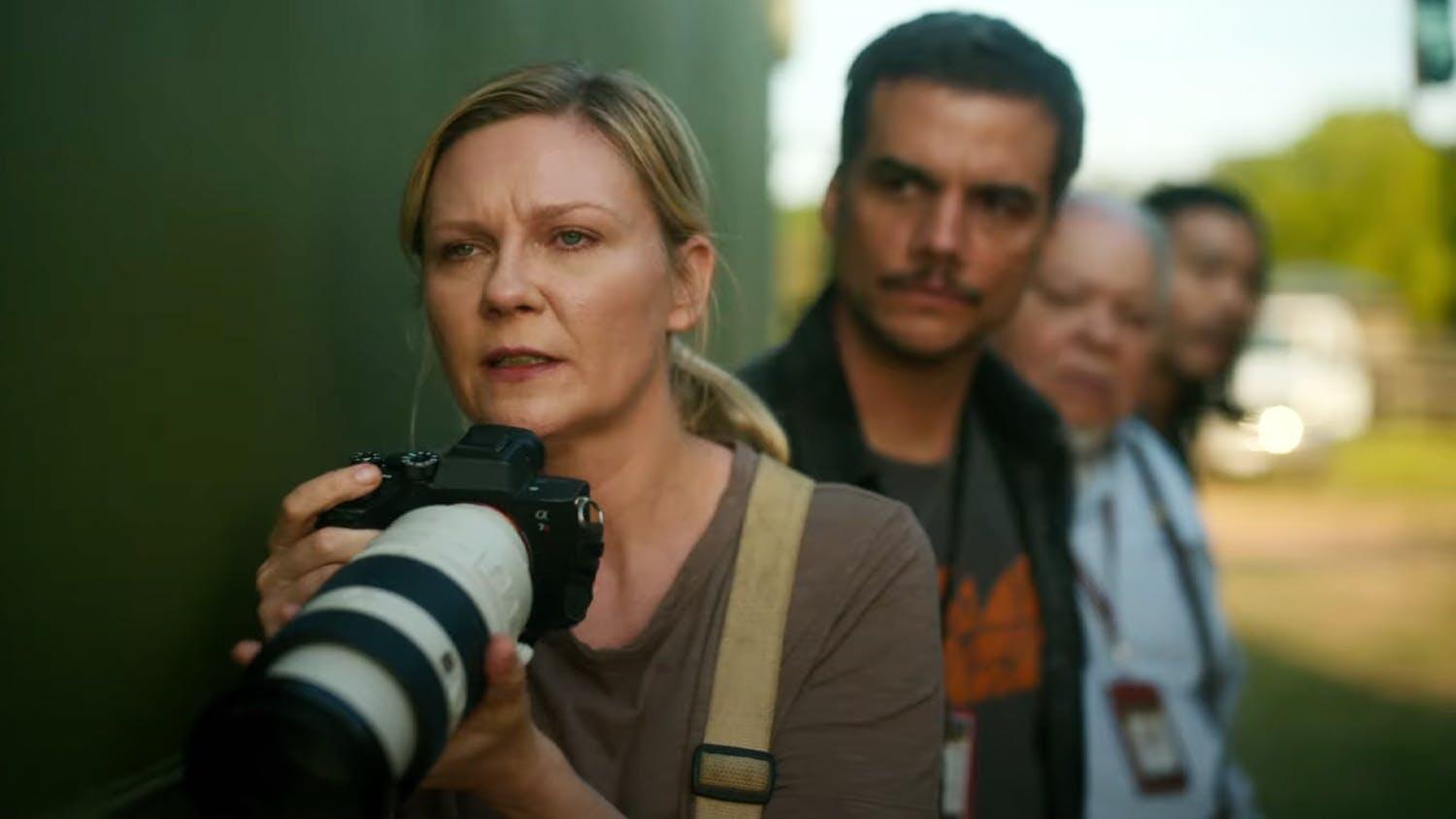At the beginning of Master Gardener, the blooming flowers anticipate the story that will be told but above all symbolize the circularity of life and the continuous possibility of transformation. Just like what happens to the protagonist of Paul Schrader’s film.
You don’t need to have a green thumb to love Paul Schrader‘s latest antihero. Having survived his terrible past, he cultivates his garden and waits for spring in a blossomed purgatory. Because civilization, like flowers, springs from the chimerical project of containing barbarism. Between nature and culture, Schrader revisits the history of America.
An incredible variety of flowers bloom in rapid succession against a black background, petals unfold revealing their wondrous heart, stems stretch solemnly to support it while the credits roll in split-screen introducing the author of Master Gardener: “A film by Paul Schrader,” nothing more, nothing less. What we see unfolding before our eyes is the new metaphor of a director who has produced a visionary and Calvinist filmography, probably the most monomaniacal of contemporary American cinema.
An endless variation on the figure of the lone, tormented man, at the crossroads between Travis Bickle of Taxi Driver (scripted by Schrader), the characters of Robert Bresson (his absolute model) and the notes of Dostoevsky. After fifty years of activity, his narrative and visual metaphors have become the very reason for his cinema, translations through which the viewer must pass if they want to understand the central problem of his characters: all men, all alone, all stoic, all with a violent past that finds salvation in a monastic and ritualized existence.
In Master Gardener, it’s the care of a French garden, governed with a firm hand by a wealthy heiress (Sigourney Weaver), a ghostly figure who protects her flowers like an endangered species and reactivates, in a pre-abolitionist America décor, the memory of a long history of class and race domination.
Flowers of a thousand colors like yellow taxis or green gaming tables form a constellation of titles and images that the author is interested in not for what they are but for what they mean in the existence of his characters. The opening credits clarify the central idea of Master Gardener inviting us to put on work gloves and search for the root of this third Schraderian act. After First Reformed and The Card Counter, Master Gardener beautifully completes a trilogy about punishment and redemption. Orchids, tulips, peach blossoms… the titles bloom on the screen and on the musical harmonies of Dev Hynes, announcing Schrader’s preferred ‘botanical’ program: the seeds of a cinema that is corrosive and always sensitive to the American fleurs du mal. Following the priest and the gambler is the horticulturist Narvel Roth (Joel Edgerton), the latest avatar of this series of Schraderian antiheroes suspended between two permanent horizons – accomplishment and fanaticism, love and violence, guilt and forgiveness – to better push them on the brink of destruction and a morality that will decide their annihilation or their emancipation.
Simplicity here is essential: a bouquet of flowers, a handful of characters, a single set (the Candyland imagined by Tarantino for Django Unchained), the basic motif of redemption, which Paul Schrader tirelessly brings to life. The directorial choices matter just as much, every gesture, every cut, every glance contributes to bringing the drama to its destination. The practice of gardening, the art of growing flowers (the subject of the beautiful opening sequence), is taken very seriously by Schrader and his disciplined protagonist, for Narvel Roth it’s mostly a matter of learning and ethics, a sober and transcendental relationship with the world. “Gardening is an act of faith in the future,” Narvel writes at the end of the opening credits, like Schrader’s previous protagonists he does a soul-searching by writing existential notes in his diary. Germination is the key to the metaphor: the human soul, like the seed, carries something that only waits to grow. But the conditions must be right and are conditioned by time. The time it takes to bloom.
The floral beauty of the beginning, which is celebrated and given to the viewer, prepares the ground and prepares us for immersion in a closed context, as if cut off from the world, separate, almost timeless. An ‘Eden’ we will not leave for the entire first half of the film and in which a still racist imaginary persists.
It’s the magnificent estate of Mrs. Norma Haverhill, a wealthy landowner who rules over her garden and her keeper, whom she has collected from the limbo of a federal witness protection program, and exudes a past that remains as blurred as the temporal and spatial references of the narrative. From the architectures and the sultry climate, we could be in Louisiana. From the start to the last frame, the film reminds us that the purity and beauty of nature are indecipherable. The author does not cease to confront the white guilt but seems to have found in horticulture the material for a faux justice film, where redemption does not pass through a bloody repentance but in the delicate germination of a seed: that of a fragile hope that needs to be nurtured to blossom. Supported by numerous vertical tracking shots, the camera movements start from nature and rise to human height, Schrader’s metaphor is clear: our primary state, which some call natural, is not a fatality and can be corrected and led where it seems right to us. Just like a garden, this attitude is cultivated.
Beginning and end confirm the optimistic character of Schrader’s new cinema, less interested this time in staging a dangerous man in action. His leitmotif has become a totem that is kept hidden like Narvel’s tattoos, almost to remind him of a past moment of his filmography that needs to be preserved to better express what he has to offer anew. If the stake for the author always lies in the mutation of his characters, who move from a vegetative state to one of action, the nature of this action has changed, it’s no longer about a brutal discharge of violence but about a kind of existential sobriety. The fireworks of his films turn into the simple physical act of blossoming or an embrace, a carnal scene that the author films like a sacred ceremony, full of mystery and modesty.
Schrader enters the ‘field’ and tests his range of colors, pushing it to a form of theoretical derealization. Of his cinema archetypes, the characters of Master Gardener are the least embodied, almost as if they were the ghosts of their predecessors. They are the fossil imprint or the ‘flowered dream’ of a filmography that contradicts its program until the happy ending. Seated in his dark room – like Travis before him, Taxi Driver is the template – Narvel removes the ‘uniform’ (the apron) that hides the infamous marks of his past (his torso, back, and arms are dotted with tattoos glorifying Nazism) and opens his heart, as announced by the titles. The former white supremacist has become a horticulturist to find a balance between order and chaos. Perhaps this is Schrader’s definition of art.
Marzia Gandolfi
Film TV, March 15, 2024

